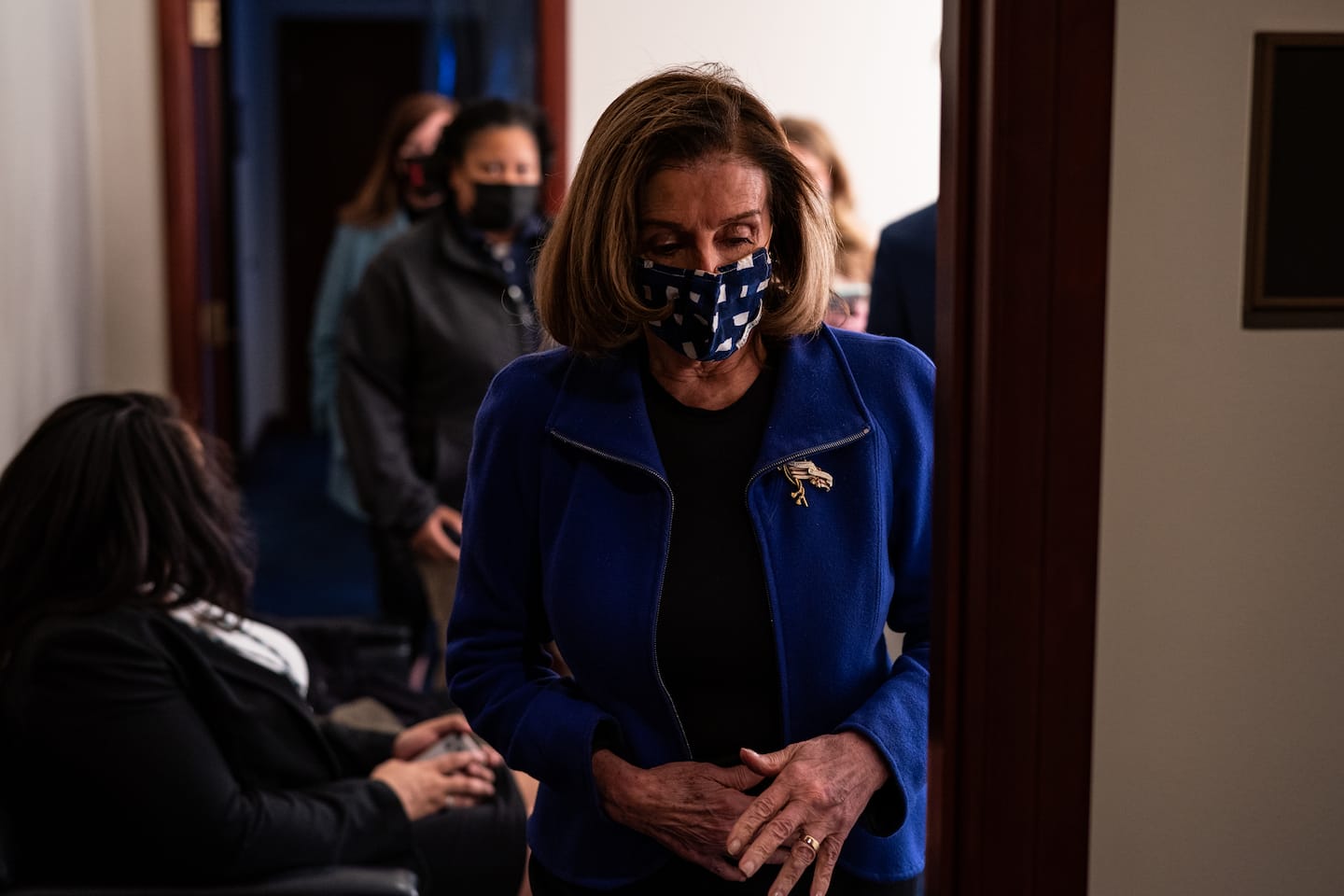House Democrats move forward on Biden’s $1.9 trillion relief plan despite setback on minimum wage

The action in the House comes a day after the Senate parliamentarian ruled that the $15 minimum wage increase in the legislation is not permitted under Senate rules. Nonetheless House Democrats intend to pass the legislation with the $15 minimum wage included, setting up fights over the issue in the Senate.
Beyond the minimum wage increase, the sprawling relief bill centers on providing $1,400 stimulus payments to tens of millions of American households; extending enhanced federal unemployment benefits through August; providing $350 billion in aid to states, cities, U.S. territories, and tribal governments; and boosting funding for vaccine distribution and coronavirus testing, among myriad other measures such as nutritional assistance, housing aid, and money for schools.
Democrats hope to push the legislation through both chambers and get it signed into law by March 14, when enhanced unemployment benefits are set to expire unless Congress acts first. It’s uncertain if disputes over the minimum wage or other issues would complicate that timeline.
On Thursday night, the Senate’s parliamentarian ruled the wage hike as currently written could not proceed under “reconciliation” — the budgetary maneuver Democrats are using to pass the stimulus bill through the Senate without GOP votes.
House Democrats were undeterred.
“The Senate parliamentarian’s ruling is disappointing; raising the minimum wage would give 27M+ Americans a raise during this devastating economic crisis. House Dems are determined to #FightFor15,” House Speaker Nancy Pelosi (D-Calif.) said on Twitter. “This policy will remain in [the bill] and pass.”
As an alternative to the minimum wage increase, Senate Democrats are exploring a tax hike on large corporations that do not pay a $15 an hour minimum wage. Senate Majority Leader Charles E. Schumer (D-N.Y.) is eyeing trying to include the provision in the relief bill in the Senate, according to two Democratic aides who spoke on the condition of anonymity to discuss internal thinking. It’s uncertain if the proposal would command enough support to advance.
The economy has been showing more signs of progress. Personal income rose 10% in January, the Commerce Department reported Friday, thanks largely to the December stimulus package Congress passed. New claims for unemployment insurance fell sharply last week, as covid cases continue to decrease and vaccine distribution becomes more widespread.
Still, only slightly more than half the 20 million jobs lost during the pandemic have returned, and Federal Reserve Chair Jerome H. Powell has said the real unemployment rate is closer to 10 percent, meaning the economy has a long way to go to recover to its pre-pandemic levels.
Congressional Republicans argued Biden’s stimulus is poorly targeted, too expensive, and includes measures unrelated to the pandemic. House Minority Leader Kevin McCarthy (R-Calif.) has panned the measure as “costly, corrupt, and liberal,” citing money for transit agencies in San Francisco and Planned Parenthood, among other provisions.
Altogether, Congress approved some $4 trillion to fight the pandemic last year, including $900 billion in December, and Republicans said that’s more than enough especially in light of some signs the economy is improving. Democrats, however, said more help is sorely needed.
“Millions are going hungry and even more don’t know how they’ll pay next month’s rent,” said Rep. Suzan DelBene (D-Wash.). “Their pain is our pain and we can’t expect them to ride this out without our help.”
Ahead of the floor vote, Democrats and Republicans sparred angrily in the House Rules Committee over the legislation, with Republicans complaining they’d been shut out of negotiations.
“Probably why you see so much frustration from our side is we’ve been completely closed out to make any modifications to this,” said Rep. Jason T. Smith (R-Mo.), arguing that the legislation rewards blue states over red states won by former president Donald Trump in allocating money for state and local governments.
House Rules Chairman Rep. Jim McGovern (D-Mass.) accused Smith of going on “a diatribe” and said “maybe this is what you get from going on a QAnon webpage.”
“I’ve never been on a QAnon Web page!” Smith said.
“Well you sound like it,” McGovern retorted.
“I’m just speaking the truth,” Smith insisted.
“The constant polarization, the constant pitting red states against blue states — people have had it,” McGovern said.
House passage of the legislation looked all but assured on Friday, but the outlook is trickier in the Senate, where moderate Democrats have raised questions about a number of provisions, including the structure of the state and local aid issue. The Senate is split 50-50 between Democrats and Republicans, so if Republicans remain opposed Democrats can only pass the legislation if they stay united and Vice President Harris breaks the tie.
The “budget reconciliation” process allows legislation to pass the Senate with a simple majority vote, instead of the 60 votes usually required. But it also contains limitations, prohibiting certain measures that don’t impact the federal budget in particular ways. The parliamentarian determined that the minimum wage did not pass that test.
If the Senate passes the bill without the minimum wage increase and sends it back to the House, liberals will have to decide whether to support it anyway. Many were irate over the parliamentarian’s ruling, with some calling on Schumer to overrule her — a move the White House opposes.






